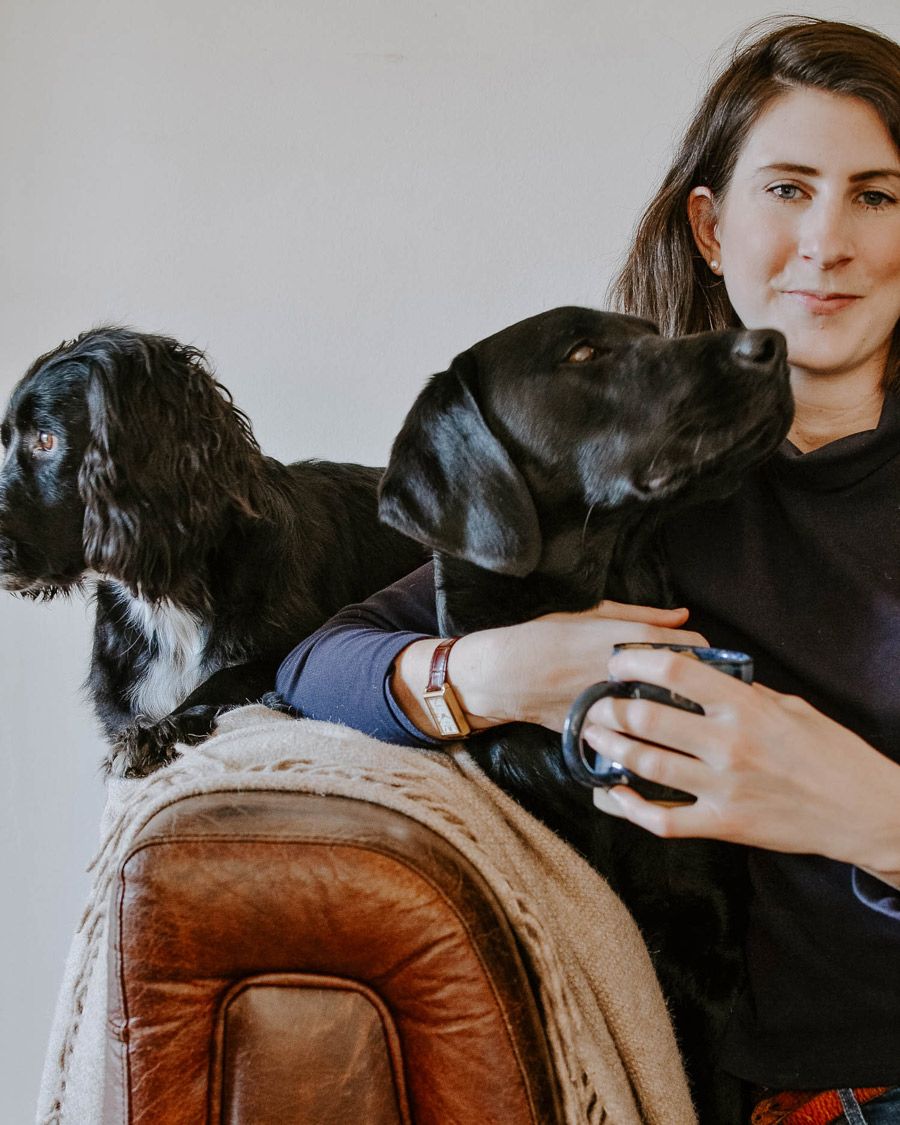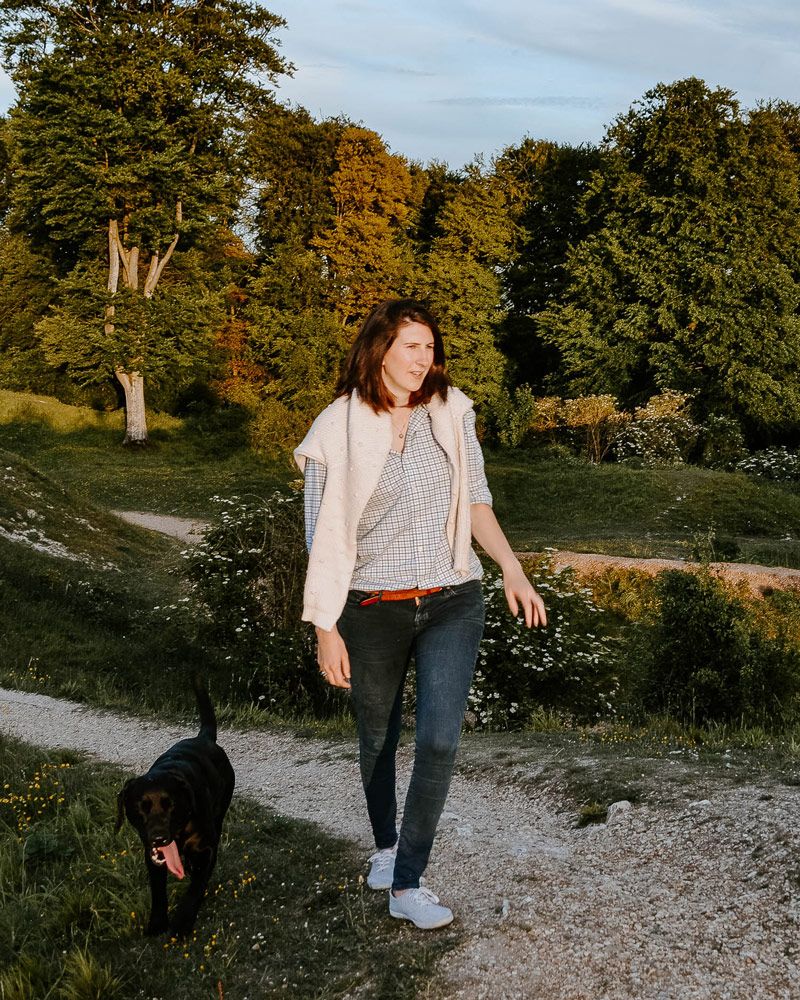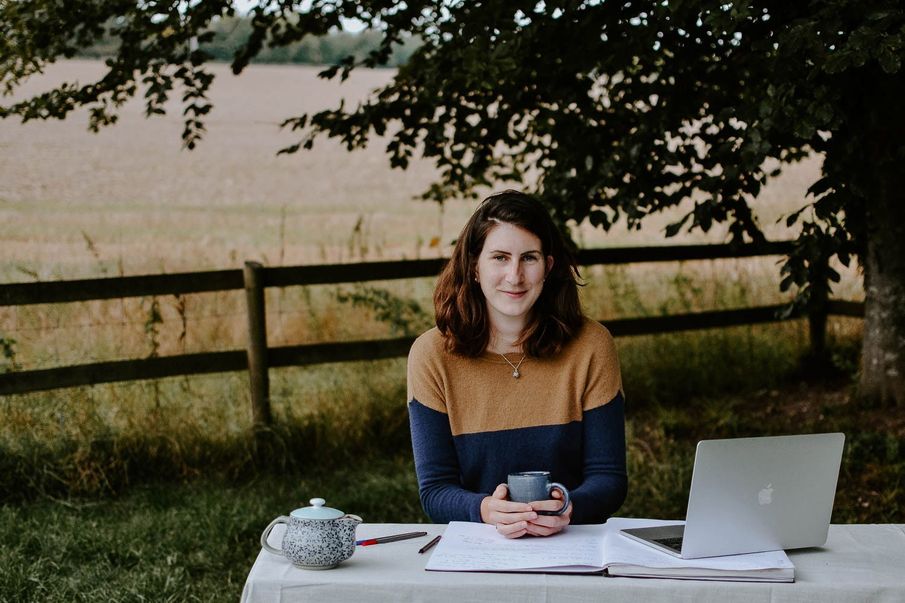She was experiencing debilitating panic attacks, but when Josephine took a step back to focus on her mental health, she uncovered the power of putting yourself first
As someone who hadn’t had a panic attack before, the first one I had was terrifying. I’d just stepped off a bus in Normandy, France, where I was spending a long weekend with my boyfriend in the spring of 2018.
We were in a seaside town, packed with tourists and people looking forward to spending a day at the beach. I was struggling to breathe, and my entire body was shaking. I was scared I’d stop breathing, and I felt dizzy and faint. It took a long time for that panic attack to subside, and it kept coming back in smaller waves. We drove to a quiet bit of coastline, where I sat for about two hours, just staring out to sea, trying to figure out what it was and what had triggered it.
When I returned home after that trip a couple of days later, the panic attacks kept coming. It was like a switch had been flicked and the simplest of tasks became impossible for me to do without having a panic attack. I couldn’t commute to work, catch a train or bus, or even attend a friend’s wedding without a panic attack.
I made a visit to the doctors, and it was useful to get confirmation that I was having panic attacks, but the advice I was given wasn’t helpful at first. I was told to do some breathing exercises and sent away with a reference sheet to read. I felt very confused and alone, not sure what else I could do about the panic attacks, which were happening more and more frequently.
Over the summer of 2018, I cancelled hen weekends I’d already paid for, weekends in London with friends who’d travelled from halfway around the world to come, birthdays, and all sorts of social events. My friends and family were understanding and supportive, but it didn’t stop me from feeling guilty and ashamed.
At the height of my anxiety and depression, I couldn’t sleep. I went for about a month of getting roughly three hours of sleep a night, and I distinctly remember reaching a point of frustration where I was sobbing: ‘I can’t do it anymore.’ It’s the most frustrating thing in the world, not being able to sleep. It’s also a vicious cycle. The less I slept, the more anxious and depressed I felt. The more anxious I felt, the less I slept.
During the summer, I’d visited the doctors multiple times, but never got anything more from them other than some advice to practise breathing exercises and ask my boss if I could work from home. They also gave me some beta-blockers to try, but even when I was taking them I was still having regular panic attacks.
I realised that the anxiety was here to stay, and I had to do something about it. On my fifth visit to the doctors in early September, after a month of very little sleep, I couldn’t control the sobs and my shaking voice. After explaining that I was still struggling, I finally got signed off work for a month while I went on to some medication to help the anxiety and depression.
It was during this time off I finally managed to find some tools to help me manage my anxiety, and get it back under control. I walked my dogs every day for about three hours – they loved it! It also had a huge impact on me; my breathing slowed and my anxiety dropped when I was outdoors. There really is something magical about spending time in nature. There was also something about spending time outdoors that gave me a new perspective on life – and it also made me realise how important it was for me to get outdoors every day, it’s therapy for the soul.

At work, they were understanding about my time off, and when I went back they let me work from home when I needed to, and also suggested that I could work half days in the office if it would help. But I quickly realised that I needed a dramatic change in my lifestyle to get my anxiety and depression back under control. The pressure of meetings and a long commute were still taking their toll on my mental health.
I’d slowly been building my own business on the side of my nine-to-five job for a few years. I’d always dreamed of taking it full-time, and living a slower and more meaningful lifestyle where I could do the work I really love. Until experiencing these struggles with my mental health, I’d always seen leaving my nine-to-five as an unrealistic dream – but with the struggles I’d experienced with my mental health, it became a need not a want, to grow my side-hustle into my full-time income. I needed to call the shots on the hours I worked, and where I was working, to help me manage my mental health.
The big leap came in April 2019. I left my job to take my side-hustle full-time and, although it’s been an emotional rollercoaster, it’s been the best thing for my anxiety. I now walk for at least an hour every morning, I don’t have the stress of a commute or the pressure of board-room type meetings. I’ve seen a significant improvement in my mental health since leaving my job, but I know this isn’t an easy step for everyone, and it happened to be something I’d already been working towards for a few years prior.

I have a lot to thank my anxiety and depression for, in a funny way. It’s given me the push I needed to change my lifestyle into a more fulfilling and joyful one. It’s forced me to live more healthily and include daily exercise in my routine. It’s helped me learn so much about myself, and I now value basic things like daily exercise, eating proper meals, and getting at least eight hours of sleep. Self-care is something I never stop talking about with clients.
I’m starting to slowly come off the medication. It’s not been a linear journey. Originally, I started to come off it too quickly, and had a series of panic attacks again (one of which was while I was driving down the M5 – not ideal!). But I’m so grateful for the medication I was eventually offered, it’s allowed me to function in the way I needed to.
The biggest thing I’ve learned from this experience is that, sometimes, you have to put yourself first, you just do! It’s something a lot of us struggle with, but when you value your own wellbeing, when you’re feeling healthy and energised, you can pour that into other people, and influence some really positive change in others, as well as yourself.
Our expert says...
Josephine was unprepared for the intensity of her first panic attack, and the many panic attacks that followed prevented her from living her life. She discovered that working from home and walks in nature helped, as her breathing slowed and she could control the anxiety. This helped her to recognise that lifestyle changes were needed. She became her own boss, which gave her more control over her time, and allowed her to get outdoors every day.
Graeme Orr | MBACP (Accred) counsellor
If you or someone you know is experiencing panic attacks, book an appointment with a GP. You can also visit our 'where to get help' page with listening lines and guidance.


Comments